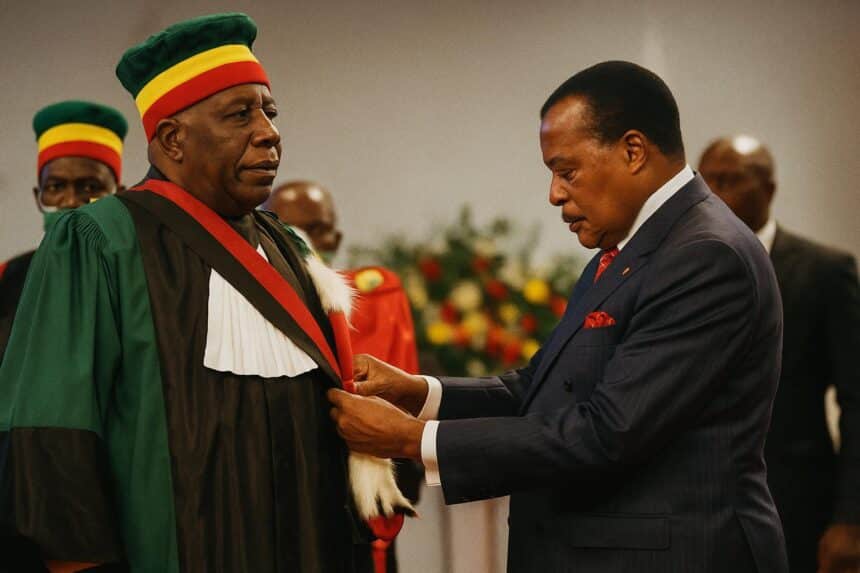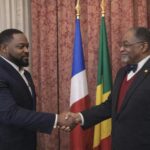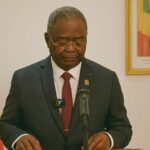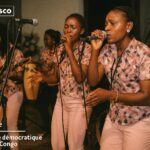National Reverence in the Palais des Congrès
The vaulted hall of Brazzaville’s Palais des Congrès rarely gathers an audience as eclectic as the one that assembled on 25 July 2025. Diplomats, cabinet members, scholars and traditional chiefs filled every seat, their collective attention fixed on a figure whose name has long circulated in academic footnotes from Dakar to Berkeley. When President Denis Sassou Nguesso rose to confer the Grand-Croix of the Congolese Order of Merit upon Professor Théophile Obenga, applause reverberated with the cadence of both national pride and scholarly admiration. The Grand-Croix is reserved for personalities whose achievements transcend disciplinary borders; its conferment on Obenga, now eighty-nine, served as a public affirmation that the Republic acknowledges its intellectual vanguards as an integral asset of soft power.
From Mbaya to the Sorbonne and Beyond
Born in the modest village of Mbaya in 1936, Obenga’s academic itinerary has unfolded like a cartographic tour of twentieth-century knowledge centres. After early studies in Brazzaville, the young prodigy secured scholarships that carried him to Bordeaux for philosophy, to the Sorbonne for his doctorate in letters, to Geneva for Egyptology and later to Pittsburgh for the budding science of education. These transcontinental passages endowed him with a scholarly polyglossia that still infuses his prose with both classical rigour and vernacular intimacy. His bibliography—twenty-five monographs and more than fifty peer-reviewed articles—inscribes Congolese scholarship within global debates on civilisation, modernity and the longue durée of African ideas.
Forging the Negro-Egyptian Hypothesis
Obenga’s scientific notoriety rests chiefly on the Negro-Egyptian linguistic hypothesis, advanced in concert with Senegalese polymath Cheikh Anta Diop. Published excerpts in the Cahiers Ferdinand de Saussure in 1968 traced genetic affinities between Kikongo, Mbosi and Classical Egyptian, dismantling the old disciplinary partition that exiled pharaonic studies to the Mediterranean fringe (Revue Française de Linguistique, 1990). While critics initially questioned the comparative corpus, subsequent computational analyses at the University of Leiden lent cautious support to his phonological matrices, nudging the theory from speculative manifesto to a respectable research programme. In African universities, the paradigm offered students a counter-narrative to linguistic atomisation, providing a unifying framework at a moment when post-colonial states were still negotiating their cultural sovereignties.
Academia Meets Statecraft
The scholar’s curriculum vitae intersects repeatedly with the affairs of state. As Minister of Foreign Affairs between 1977 and 1979 he supervised Brazzaville’s signature on regional non-aggression pacts while championing educational exchanges with Eastern Bloc universities, a calculated diversification that pre-empted geopolitical over-dependence on any single partner (Archives Diplomatiques du Congo, 1982). Later appointments as Minister of Culture and as Director-General of the International Centre for Bantu Civilisations (CICIBA) in Libreville underscored his conviction that cultural policy constitutes a pillar of foreign policy. His proposal in 2009 to create a world-class university north of the capital materialised in 2021 with the inaugural cohort of the Denis Sassou Nguesso University at Kintélé, now networked with UNESCO’s UNITWIN programme.
International Recognition and the Politics of Honours
Decoration has become a form of cultural diplomacy in its own right, mapping an informal cartography of influence. France appointed Obenga Commandeur de l’Ordre des Arts et des Lettres in 2018, situating him within a lineage that stretches from Aimé Césaire to Toni Morrison (Le Monde, 2018). Friday’s Grand-Croix thus deepens a transcontinental dialogue of honours that signals Brazzaville’s determination to elevate its intellectual ambassadors alongside its energy or timber exports. By dedicating the accolade ‘to the continent’s awakened youth’, Obenga subtly re-centred the narrative on Africa’s demographic dividend, transforming a ceremonial moment into a pedagogical interlude.
Critical Independence within Loyal Proximity
Observers of Congolese political life recall that Obenga has never been merely a court intellectual. His editorial in Les Débats Congolais during the 2010 constitutional review cautioned against ‘the complacency of victorious elites’, a phrase that momentarily unsettled some within the presidential circle yet underscored the Republic’s tolerance for substantive critique. In a conversation with this writer two years ago, he described his relation to power as ‘une proximité vigilante’, an apt oxymoron that reconciles loyalty to the state with fidelity to scholarly method. It is perhaps this disciplined candour that has rendered his counsel particularly valuable in deliberations on higher-education reform and national cultural strategy.
Legacy, Continuity and the Imperative of Transmission
A colloquium scheduled for December at the Marien Ngouabi University will assemble linguists, archaeologists and digital-humanities specialists to audit the contemporary resonance of the Negro-Egyptian thesis. Preparatory papers suggest a dialogue between historical philology and corpus-based machine learning, revealing how Obenga’s once-controversial idea might migrate into computational frameworks. Such initiatives illustrate the broader strategic value that Brazzaville attributes to knowledge production as an instrument of international visibility. In the longer view, the Grand-Croix functions less as a coda than as a relay, signalling to emerging scholars—Congolese and otherwise—that rigorous inquiry, conducted in concert with national development, remains a vocation worthy of the Republic’s highest regard.



















